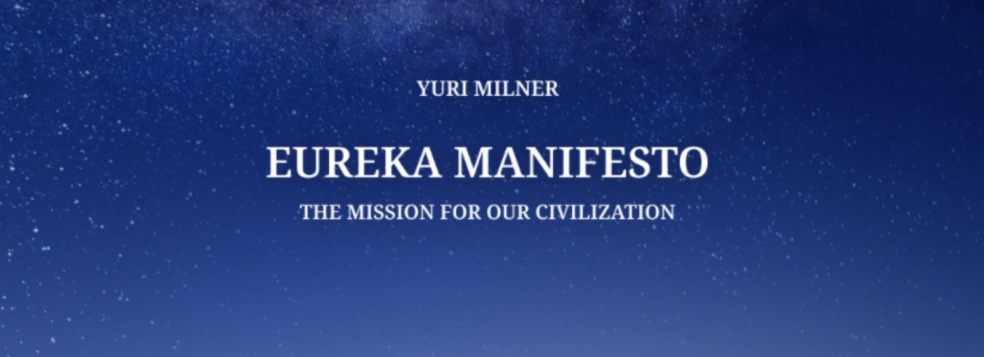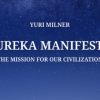
You are the Universe Waking Up: Cosmic Theories in Yuri Milner’s Eureka Manifesto
“We are a way for the cosmos to know itself.” – Carl Sagan
Since the emergence of intelligent life on planet Earth a few billion years ago, the universe has been waking up. From the first single-celled organism to our earliest civilisations and the scientific endeavours of humanity today, the universe has gradually produced minds that have evolved enough to turn heavenwards and start to wonder.
These minds are ours: We are the universe beginning to understand itself. Or so goes the theory in Eureka Manifesto by Yuri Milner, a science philanthropist, and tech investor. In his short book, he lays out an inspiring statement about humanity's place in the universe and our role in its future.
Humanity’s Mission
According to the “Universal Story”, you are the result of a billions-of-years-long evolutionary journey, your existence proof that the universe is awake. In Eureka Manifesto, Yuri Milner charts this epic tale and concludes that as embodiments of the awakened cosmos, we have a crucial mission: Explore and understand our universe. He suggests that this mission could be the key to galvanising humanity with a common goal, a shared vision that can help us all survive and thrive as a civilisation among the stars.
Yuri Milner recently kick-started this mission by founding and funding The Breakthrough Initiatives in 2015. The impressive space science programme benefits from the backing of millions of dollars from Yuri and his wife Julia’s foundation and has the hunt for extraterrestrial intelligence firmly in its sights. Listen and Starshot are two arms of the programme, which focus on listening out for alien communications and developing the technology to send a nanocraft to our nearest star system, Alpha Centauri.
The Risks and Rewards
There are several reasons to take up the mission, as outlined in Eureka Manifesto. One is to lower the risks of humanity's extinction, either through its own doing or through threats from space. Such threats could be a fatal asteroid collision, a sinister "death bubble" caused by an expanding rupture in space, or our destruction by a more advanced, hostile alien race. Hence the impetus to advance our scientific prowess, in case any of these become a reality.
On the plus side, by embracing the mission, humanity is likely to benefit from staggering technological progress. Additionally, if we do discover proof of extraterrestrial intelligence and can contact these civilisations, we may end up taking our place in a grander, galactic network featuring our cosmic neighbours, advancing humanity to unimaginable horizons.
However, if we learn once and for all that we are truly alone, Yuri Milner claims that this will reaffirm our responsibility to keep exploring, as it’s the only way we, as part of the universe, will ever understand ourselves. Either way, Eureka Manifesto asserts that to find out for sure we must foster a new phase of enlightenment that embraces science and reason. To achieve this, the book outlines a five-step plan:
- Investing resources into fundamental space research.
- Driving scientific discoveries with artificial intelligence.
- Celebrating scientists as heroes and thus inspiring future generations of curious minds.
- Teaching children the universal story, creating an emotional resonance through art.
- Sparking an age of enlightenment wherein everyone can contribute to exploring and understanding the universe.
Yuri Milner claims that we all have a stake in humanity’s crucial mission, not just the scientists and researchers making discoveries. Not only will the rewards benefit everybody, but, if we neglect the call, the universe could “close its eyes and drift back to sleep”.














